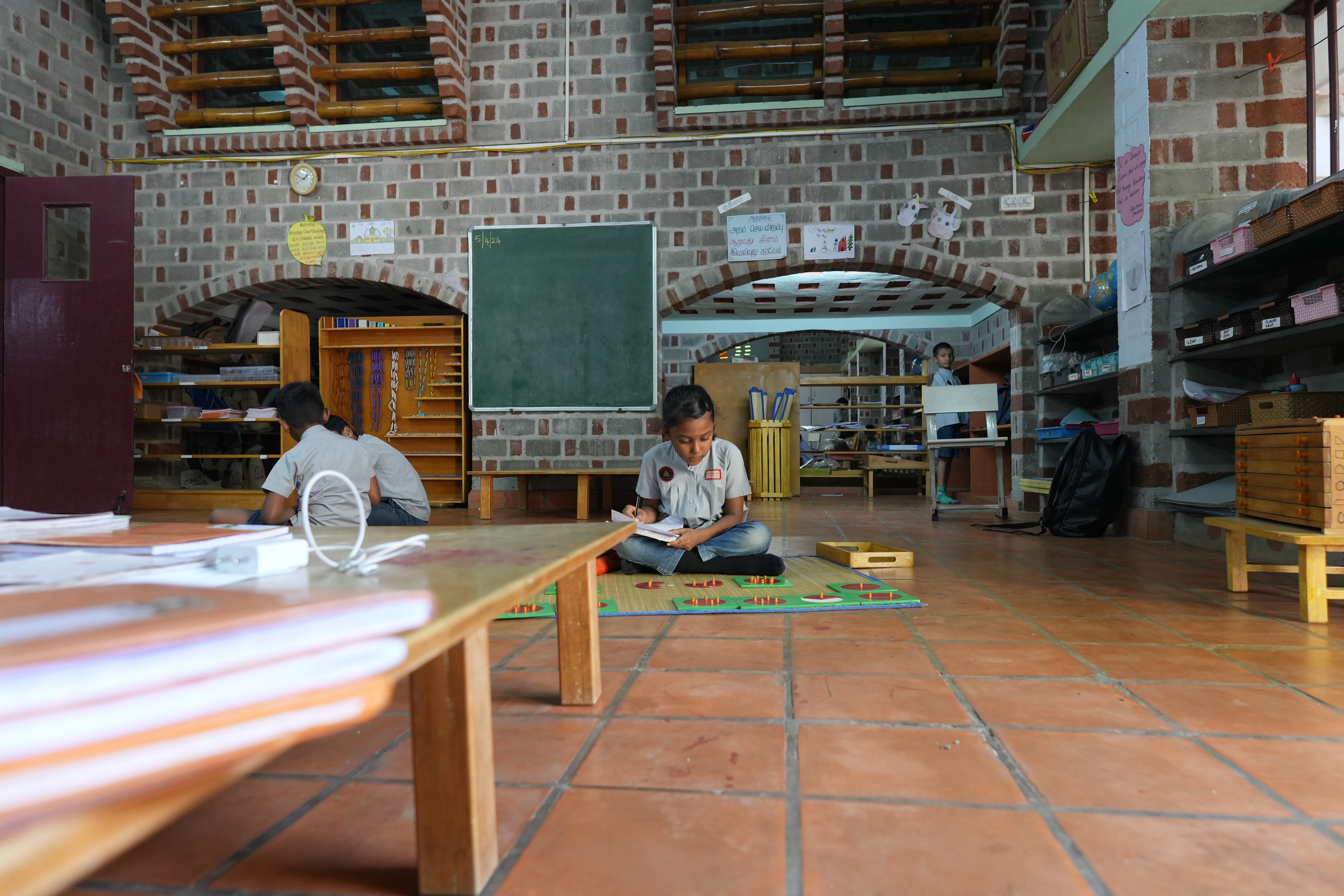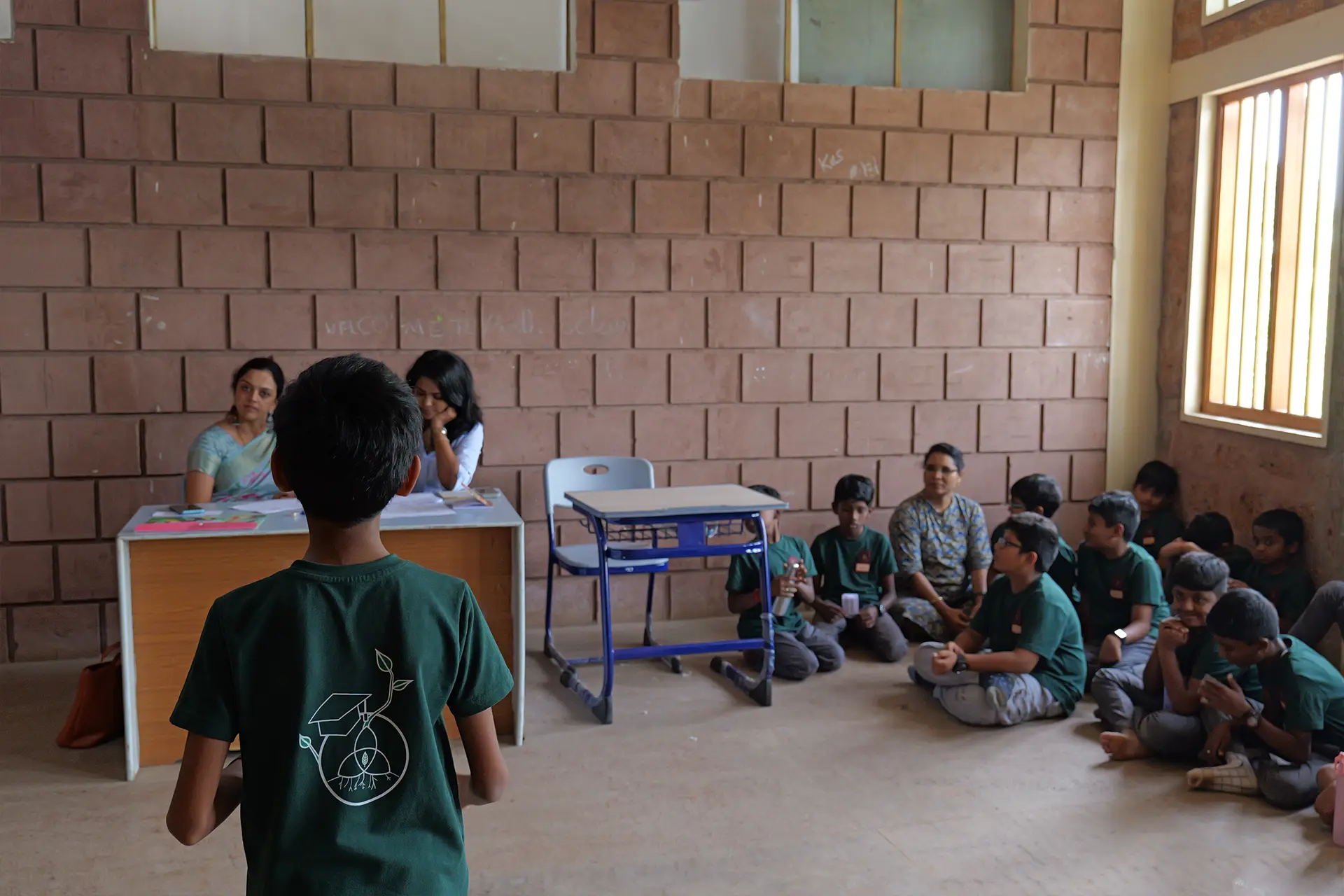The Quiet Revolution: Self-Care in Early Childhood
%20(1).webp)
I am an educator who has spent years working with young children in various educational settings across Coimbatore, from traditional ICSE schools to Montessori environments. There is something profoundly moving about watching a child discover they can take care of themselves: one day, they need help with everything, and the next, they are carefully washing their hands while humming a song about soap bubbles.
These moments of self-discovery are among the most significant in a child's early life, not just because they represent skill mastery, but because they mark the beginning of a child's relationship with their capability.
The Philosophy of Small Things
We live in an age obsessed with early academic achievements: reading readiness, mathematical concepts, language development. While these concerns are not misplaced, in our rush toward academic milestones, we sometimes overlook the fundamental skills that make all other learning possible.
Self-care is not merely about hygiene or grooming. It is about autonomy, dignity, and the quiet confidence that comes from knowing you can tend to your own needs. When a child learns to button their shirt or brush their teeth independently, they are claiming ownership of their own body and space in the world.
Personal Hygiene: The Foundation
Hand washing becomes almost sacred when viewed through a child's eyes: the running water, slippery soap, and the transformation from dirty to clean are both practical and magical. Children notice everything: water temperature, soap dispenser sounds, and how adults move through routines with unconscious efficiency.
When we slow down and allow full participation, we give children access to life's fundamental pleasure: the satisfaction of caring for oneself. When a toddler spills water while learning to wash hands, waiting and watching as they notice what happened and attempt to clean up teaches consequence, responsibility, problem-solving, and resilience.
Tooth brushing becomes geography, biology, and fine motor coordination wrapped into one daily adventure. The child navigating their mouth with a toothbrush learns precision, patience, and personal responsibility.
The Art of Getting Dressed
Anyone who has watched a three-year-old attempt to put on a jacket knows clothing is not merely functional for children—it is a complex puzzle requiring strategy, persistence, and ingenuity.
The child wrestling with a zipper engages in high-order problem-solving, learning cause and effect, material properties, and their capabilities. When we rush to help, we rob them of developing both skill and confidence from working through difficulty.
Weather assessment adds another dimension. Children learning to decide if they need a sweater develop judgment, observation skills, and an environmental connection that serves them throughout life.
Listening to the Body's Wisdom
Children are born with an intuitive body understanding that adults often lose. They know when they are hungry, tired, uncomfortable, or unwell. Our role is not to override this wisdom but to help them interpret and respond to what their bodies communicate.
This intersection of self-care and emotional intelligence becomes apparent when children recognise their stomach feels "jumpy" and communicate this to adults, developing emotional vocabulary and self-advocacy skills extending beyond the physical realm.
Hair and Grooming Details
Hair care reveals identity, culture, and self-expression. In diverse classrooms, children encounter beautiful hair: curly, straight, coarse, fine, learning that hair care is both universal and deeply personal.
When children practice brushing dolls' hair or help friends with barrettes, they learn gentleness, patience, and respect for others' bodies. These are not small lessons.
Fingernails might seem minor, but discovering that nails grow and need attention reveals constant body changes. Learning nail care contributes to children's developing sense of themselves as active participants in their well-being.
Creating Sacred Routines
Predictable rhythms provide security and scaffold independence: not rigid schedules that constrain, but gentle patterns offering comfort.
Morning routines become opportunities for children to prepare for their day. Children who can hang backpacks, change shoes, and wash hands without reminders are not just following instructions: they are participating in the community and contributing to environmental smooth functioning.
Transition times transform when children have the skills and confidence to manage their needs. Classrooms pausing for hand washing after outdoor play create collective mindfulness moments and shared commitment to caring for ourselves and each other.
Play as Teacher
Profound learning happens when children do not realise they are learning. Dramatic play areas with real zippers, buttons, and fasteners become fine motor development laboratories. Pretend kitchens where children "prepare" meals become spaces for sequencing, following directions, and understanding hygiene.
When children role-play caring for dolls or stuffed animals, they rehearse caregiving behaviours, develop empathy, and reinforce self-care routines. Children carefully "bathing" dolls process their own bathing experiences, making sense of the required steps and care.
Progress, Not Perfection
There is beauty in children's imperfect self-care attempts: slightly crooked self-styled ponytails, shirts with one askew button, teeth brushed with more enthusiasm than technique.
These imperfections are not failures to correct but evidence of effort to celebrate. They represent children's willingness to try, take risks, and claim ownership of their development.
Community of Care
The most moving aspect of teaching self-care is watching children begin caring for each other: noticing classmates struggling with shoelaces and offering help, reminding friends to wash hands before lunch. These moments reveal that self-care, paradoxically, connects us to others.
When children learn self-care, they become more capable of caring for others, developing attention, patience, and skills that make them good friends, helpful siblings, and eventually, caring adults.
The Larger Picture
Children mastering self-care skills are not just becoming independent: they are developing executive function, building neural pathways supporting complex thinking, and establishing self-respect and personal responsibility patterns influencing all future development.
More importantly, they are learning they matter. That their bodies deserve care. That they are worthy of the time and attention that maintaining well-being requires. That they have agency in their own lives.
These are not small lessons: they are the foundation upon which everything else is built.
In supporting this quiet revolution happening one button, one toothbrush stroke, one confident step at a time, we are not just teaching skills. We are witnessing the miraculous process by which dependent infants become autonomous individuals, capable of caring for themselves and others with dignity, competence, and grace.
------------------------------------------------------------------------------------------------------------------------------------------------------------------------------------------------------------------------
Contact us
WRITE
CALL
OUR LOCATION
Subscribe to our newsletter
Lorem ipsum dolor sit amet, consectetur adipiscing elit. Suspendisse varius enim in eros elementum tristique.



%202.webp)
